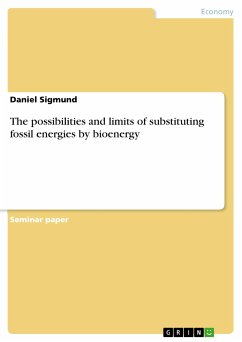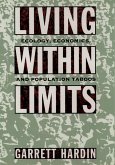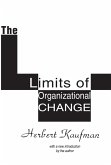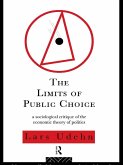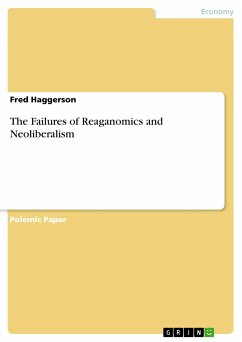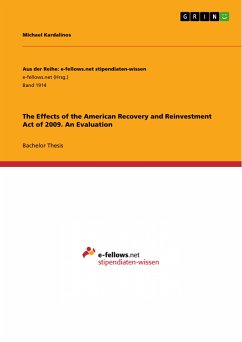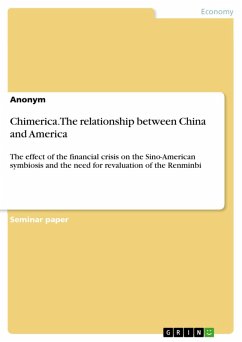Seminar paper from the year 2014 in the subject Economy - Environment economics, grade: 1,3, University of Koblenz-Landau (Institute for Environmental Sciences), course: Environmental Economics, language: English, abstract: This paper analyses how energy from biomass could be substituted for fossil energies. As a first step, we have to define different types of bioenergy and fossil energies. After this we will take a look at energetic assessments of concepts for the substitution of fossil energies and how complicated such evaluations can be. Then we will analyse possibilities and limits of biogas as substitute for coal and natural gas used in the power generation and biofuels as substitute for diesel fuel and gasoline. Both of these applications are already in use so we can take a look at their benefits and drawback. We will analyse their environmental impact, their costs, and their potential to meet the actual and the future energy demand. Renewable energies include energy by biomass. Could biomass be an alternative for fossil fuels? There are a lot of different ways how bioenergy can be produced and used. The use of energy from biomass is much older than from fossil fuels. It was not until the 20th century that fossil fuels in particular mineral oil started to dominate the world's energy market. The oldest and best-known example of using energy from biomass is the burning ofwood. Beside wood and other energy crops there is also the possibility of using biological residues to produce energy. This can be done by transforming the biomass into biogas to use it in power plants. But what about liquid fuels? We cannot drive our cars with wood. It is possible to drive with biogas but almost the whole transport sector relies on liquid fuels. One idea is the substitution of fossil fuels with biofuels. For a few years biofuels has been used in Germany, but is the use of biofuels really better for our environment? And is it possible to substitute fossil fuels completely?
Dieser Download kann aus rechtlichen Gründen nur mit Rechnungsadresse in A, B, BG, CY, CZ, D, DK, EW, E, FIN, F, GR, HR, H, IRL, I, LT, L, LR, M, NL, PL, P, R, S, SLO, SK ausgeliefert werden.

